Quality, relevance and diversity are key values for the JCOM editorial team. We continuously strive to balance our efforts of being recognised as a leading scholarly journal catering to science communication researchers and practitioners, with nurturing new voices and supporting diversity amongst our authors and guest editors. In June 2023, we held a series of meetings with our editorial board members to reflect on the current status of the journal and what we must do to ensure future growth. Below, we provide a snapshot of our position and plans.
Figure 1 shows the number of JCOM submissions and how many have been accepted or rejected since 2018. We are seeing a steady growth in submissions. The anomalous peak in 2020 resulted from a flurry of Covid-19-related submissions, with Covid-19 being the topic of research or providing authors with time to write. We are revising our peer-review guidelines and working towards stricter quality criteria to ensure that every item published in JCOM contributes to rigorous scholarship and best practices in our field.
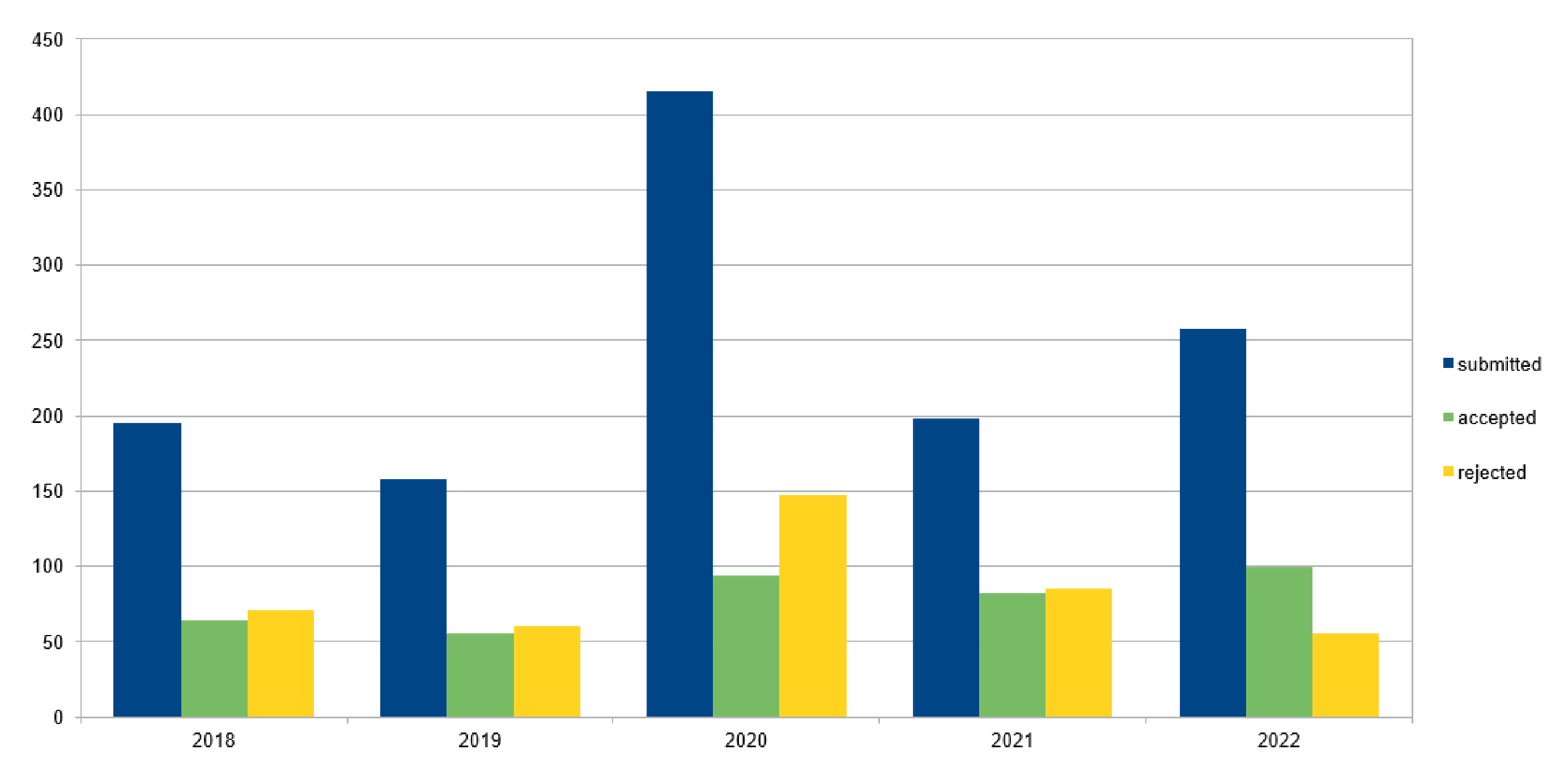
Research articles constitute the bulk of submissions to JCOM and the material we publish (as illustrated in Figures 2 and 3). We also value the practice insights and commentaries because linking science communication research and practice remains one of our key objectives. We encourage practitioners with innovative evaluations, action research or case studies of science to consider submitting these to JCOM. Conference and book reviews and review articles are only published by invitation or following a pitch to the editorial team.
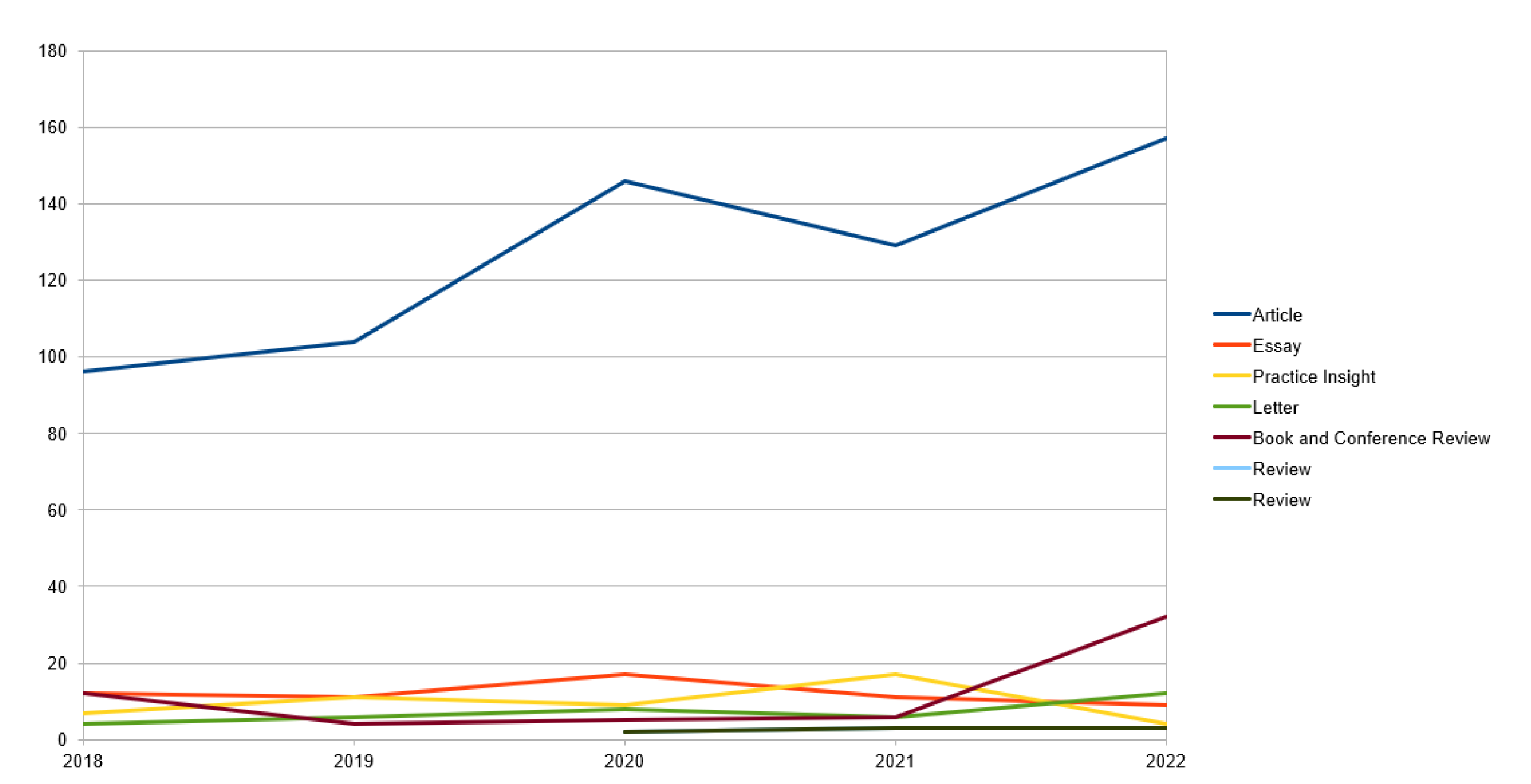
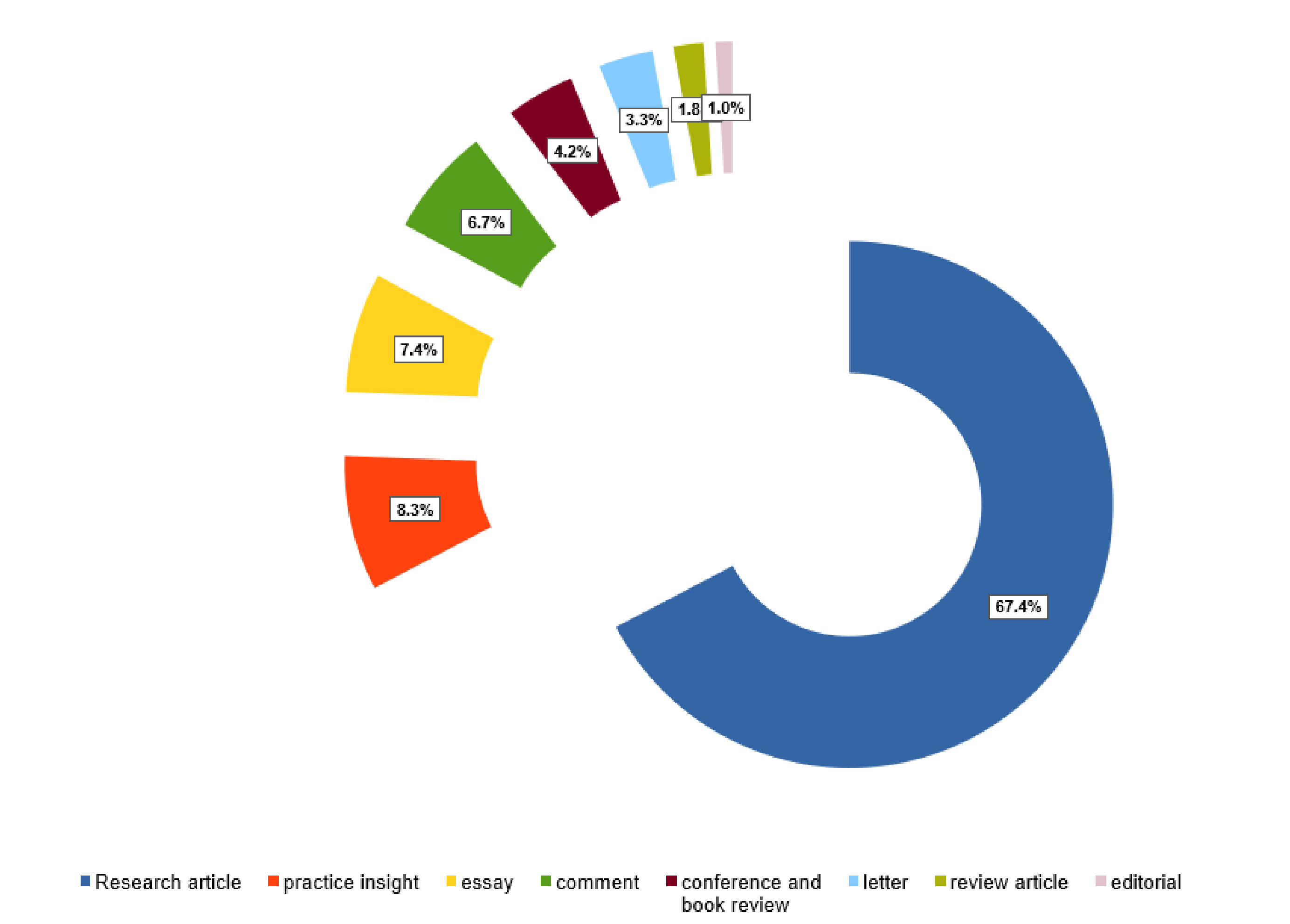
Any leading journal serving a global community should include views and voices from as many regions and countries as possible. Figure 4 shows that authors from the USA, parts of Latin America and Europe, and Australia continue to choose to publish in JCOM. However, authors from several countries where science communication is emerging as a field of research and practice are also represented. Our ongoing priority is to diversify our author and reader base, and we are considering various options to achieve this, including mentoring for new authors and publishing submissions in a broader range of languages.
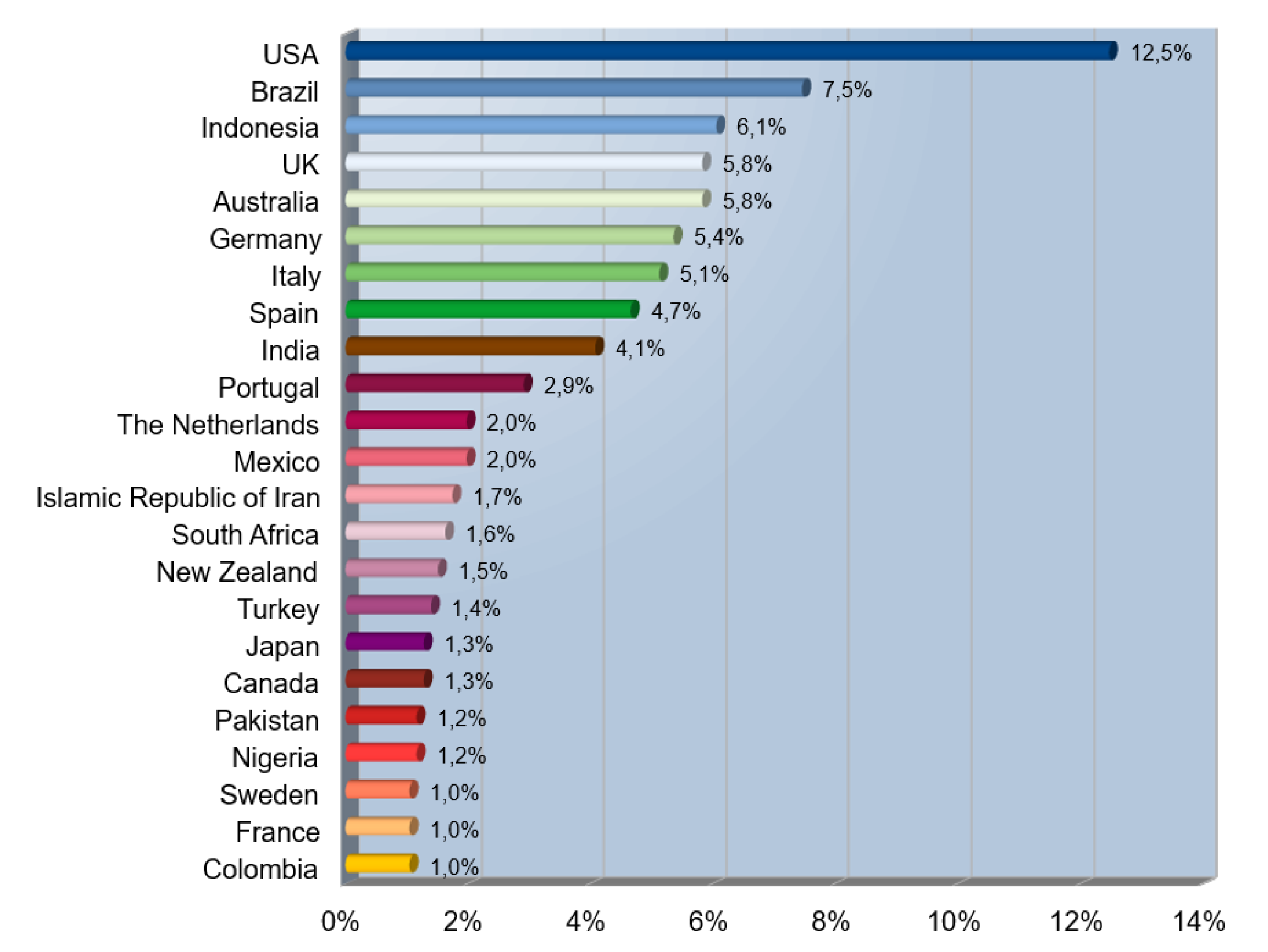
Regarding the themes of published contributions (Figure 5), science and the media remain the most prominent. But work falling under the themes of ‘public engagement’, ‘theory and models’ and ‘science communication in the developing world’ also appear near the top. We have several special issues in the pipeline that we hope will inspire researchers and practitioners to challenge their thinking and approaches over the next few years.
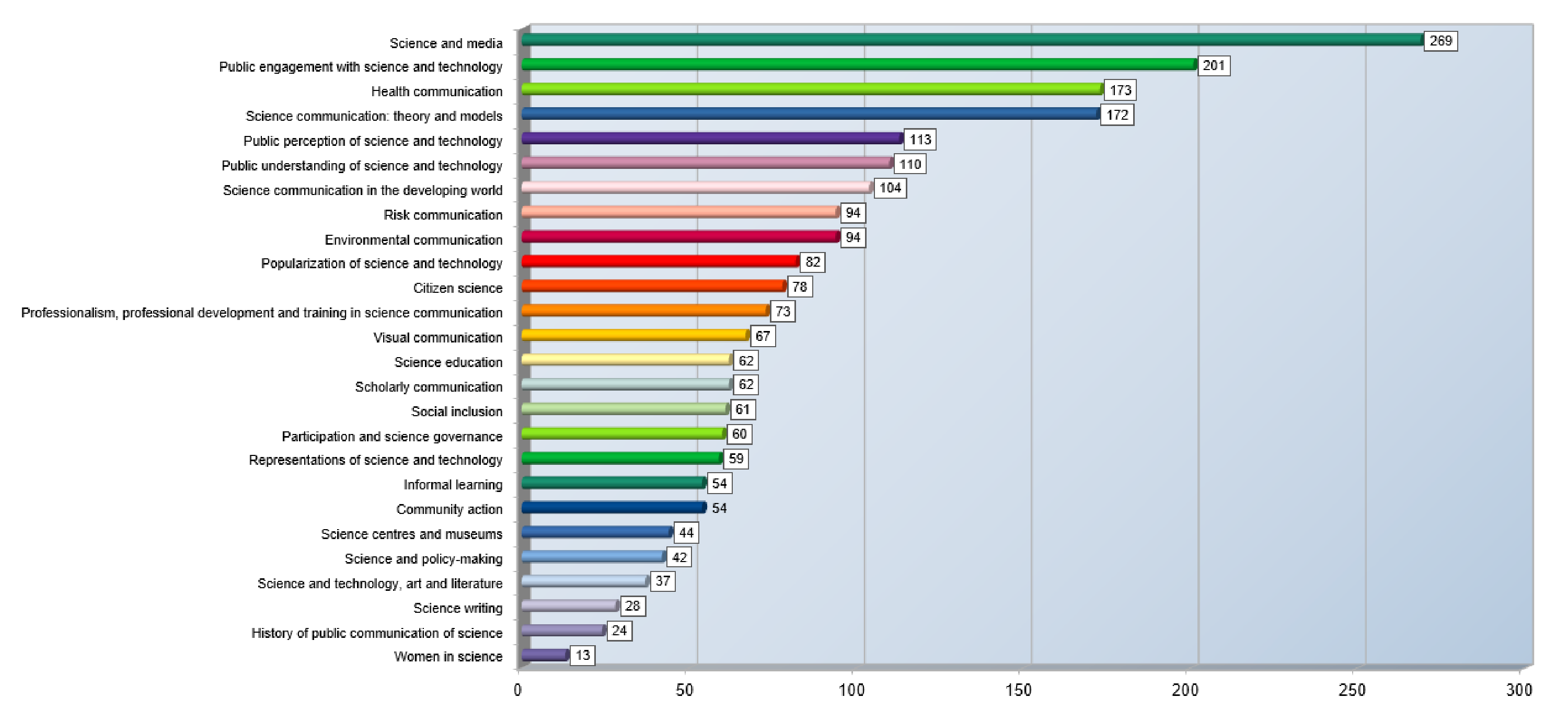
Keeping in touch
To make it easier for our readers to keep up with new JCOM content, we have created a new ‘subscribe option’ where you can sign up to receive an email (about once a week) when we publish new content. We also announce and share JCOM news on Twitter (@JsciCOM) and Facebook (https://web.facebook.com/jcom.sissa.it)
We welcome feedback and suggestions from our readers and authors. Please email the JCOM Editorial Office at jcom-eo@jcom.sissa.it, where one of the team members will direct your email to the appropriate person for a response.
Michelle Riedlinger & Marina Joubert
Authors
Michelle Riedlinger is a chief investigator in the Digital Media Research Centre in the
Queensland University of Technology, Australia.
@riedlinm E-mail: michelle.riedlinger@qut.edu.au
Marina Joubert is a science communication researcher at Stellenbosch University in
South Africa, affiliated with the Centre for Research on Evaluation, Science and
Technology (CREST) at Stellenbosch University in South Africa.
@marinajoubert E-mail: marinajoubert@sun.ac.za
